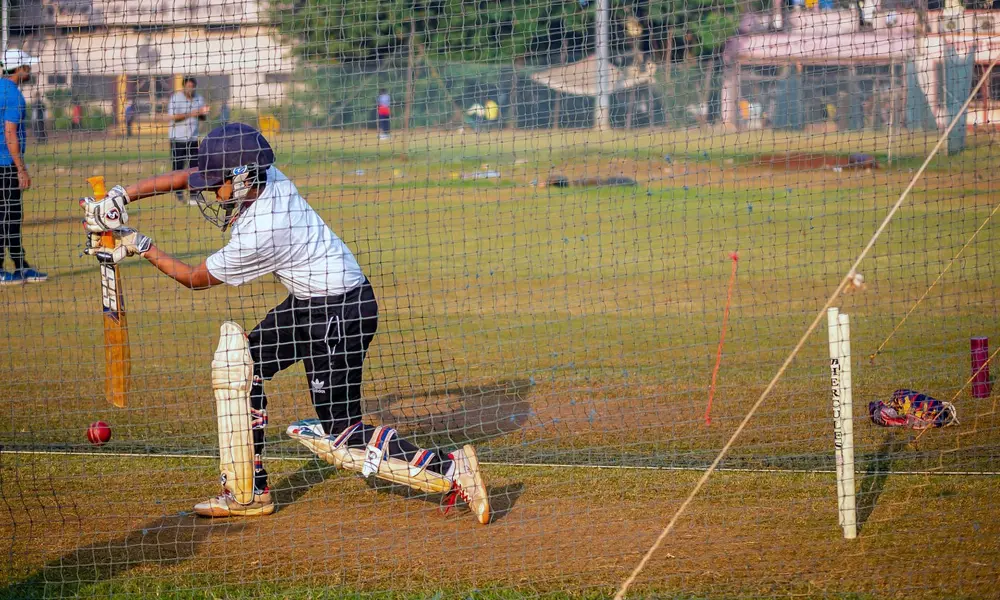The Role of Coaching and Mentoring in Cricket

Cricket, like any sport, thrives on the expertise and guidance imparted by coaches and mentors who play a crucial role in shaping the careers of players from grassroots to elite levels. Beyond technical skills, coaching and mentoring in cricket encompass leadership development, mental resilience, tactical acumen, and overall character building. Here’s an exploration of how coaching and mentoring contribute to the success and growth of cricketers:
Technical and Tactical Development
At its core, coaching in cricket focuses on refining players' technical skills, including batting, bowling, fielding, and wicketkeeping. Coaches work closely with players to improve their technique, address weaknesses, and enhance strengths through drills, simulations, and match practice. Tactical development involves strategizing game plans, analyzing opponents, and making strategic decisions during matches, ensuring players are well-prepared for varying match situations.
Physical and Fitness Training
Fitness is integral to cricketing success, and coaches oversee players' physical conditioning programs to optimize performance and prevent injuries. Strength training, agility drills, cardiovascular fitness, and flexibility exercises are tailored to meet the demands of different formats and player positions. Coaches monitor fitness levels, track progress, and collaborate with sports scientists to devise comprehensive training regimens that enhance players' endurance and resilience on the field.
Mental Conditioning and Resilience
Mentors play a pivotal role in nurturing players' mental resilience and psychological well-being. Cricket, a sport that demands concentration and composure, requires players to manage pressure, setbacks, and performance anxieties effectively. Mentors provide guidance on mental conditioning techniques, stress management, visualization, and goal-setting strategies to help players maintain focus and confidence during high-stakes matches and challenging phases of their careers.
Leadership and Team Dynamics
Coaching extends beyond individual player development to fostering effective team dynamics and leadership qualities. Coaches emphasize the importance of teamwork, communication, and camaraderie among players, cultivating a cohesive team environment. Leadership mentoring helps captains and senior players hone their leadership skills, decision-making abilities, and conflict resolution techniques, empowering them to inspire and unify their teammates both on and off the field.
Career Guidance and Professional Development
For aspiring cricketers, mentors offer career guidance and support throughout their cricketing journey. Mentors provide insights into navigating the complexities of professional cricket, including contract negotiations, sponsorship deals, media responsibilities, and life after cricket. They serve as trusted advisors, offering wisdom and encouragement to help players achieve their long-term career aspirations and personal growth objectives.
Role Models and Ethical Conduct
Coaches and mentors serve as role models, exemplifying integrity, sportsmanship, and ethical conduct both on and off the field. They instill core values of respect, fair play, and discipline among players, shaping their attitudes and behaviors as ambassadors of the sport. By upholding ethical standards and promoting positive values, coaches and mentors contribute to fostering a culture of integrity and mutual respect within the cricketing community.
Adaptation to Modern Technologies
In the digital age, coaching has embraced technological advancements to enhance training methodologies and performance analysis. Coaches utilize video analysis, biomechanics data, wearable technology, and analytics software to assess player performance, identify areas for improvement, and tailor training programs accordingly. These technological tools provide valuable insights into player metrics and match trends, enabling coaches to optimize strategies and maximize players' potential.
Conclusion
Coaching and mentoring are indispensable pillars of cricket, shaping the next generation of cricketing talent and cultivating a culture of excellence, resilience, and sportsmanship. The dedication and guidance provided by coaches and mentors empower players to achieve their full potential, navigate challenges with confidence, and uphold the values that define cricket as the gentleman's game. As cricket evolves and embraces innovation, the role of coaching and mentoring remains pivotal in nurturing talent, fostering leadership, and preserving the spirit of fair play and camaraderie that define the sport.

